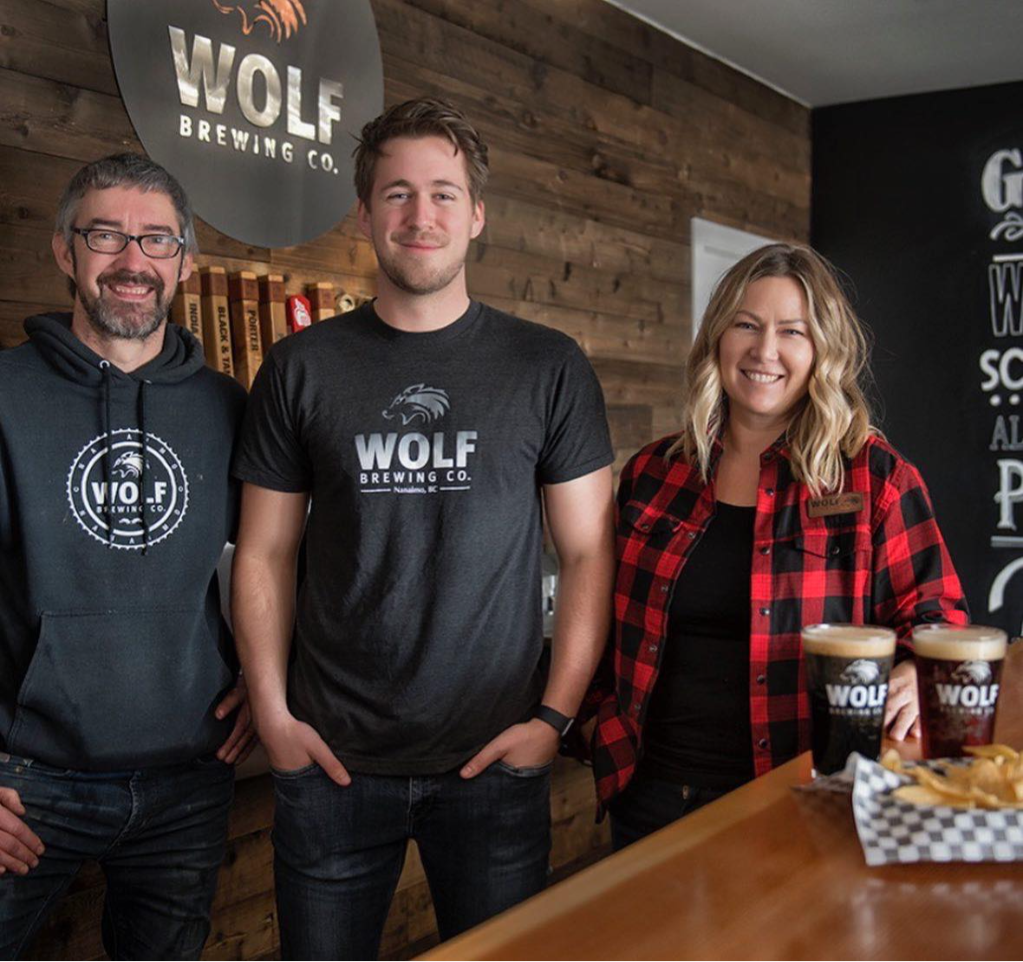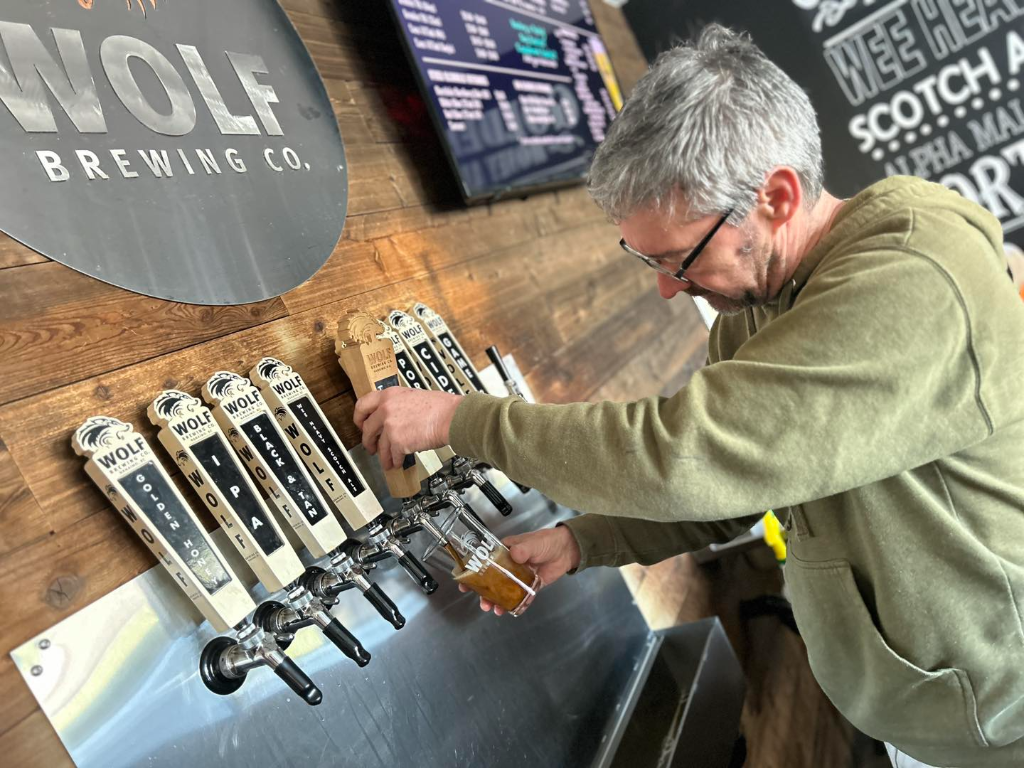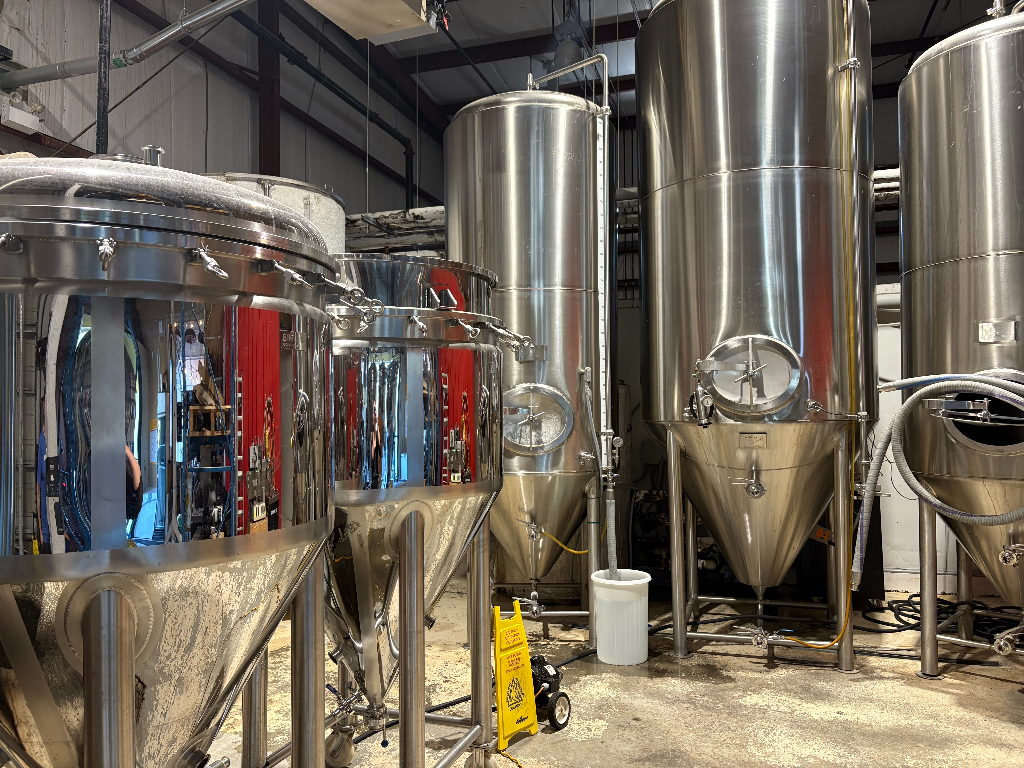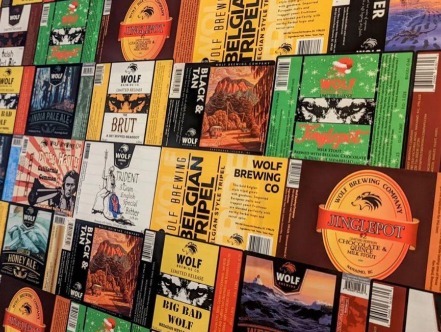The Expert Corner: Behind the Brews with Wolf Brewing
 The Expert Corner: Behind the Brews with Wolf Brewing
The Expert Corner: Behind the Brews with Wolf Brewing
*This article is Part 2 of a 2 part interview with Rob Regner and Kevin Ward from Wolf Brewing. Check out Part 1 featuring Wolf Co-owner and Managing Partner, Rob*
Who are you and what do you do at Wolf?
I'm Kevin Ward. I am brewmaster, and I have been with Wolf since 2012, so 13 years. I came on board when Wolf was two years old.
How has Wolf changed in those 13 years?
There was a brewery on this site since 1996, a very small micro-brewery. Then back in 2010, some locals came in and bought it, and created Wolf. At that point, it was only half the size that you see now.
The owners at that time recognized that the brewery was too small to sustain management and a brewer simultaneously, so we sat down, had a chat, and it was a case of either sell to a brewer operator or build and expand.
So, they got some friends together, they got some money together, and we expanded the brewery’s capacity into the adjacent bay. Coming to the end of 2018, operations were becoming a struggle, and the business was not doing well. As a result, they put Wolf on the market and that's where Rob came along in early 2019.

Kevin with Jason Clare (Asst Brewer) and Jody Regner (Co-owner). Image Credit: Wolf Brewing Facebook
How has the industry changed in that time?
In the early 2010’s, there was a big boom in the industry where creativity was at the forefront. Everyone was loving it and brewing all kinds of creative out-there beers, but the industry has since become tougher and more competitive. The margins are tighter, and it's more expensive to produce beer. You don't see as many of these wild and wonderful brews out there that cost a fortune to make.
Are you focusing on producing core products right now?
Our 5 core beers have become very popular. Because we only have a small number of fermenters, it's a lot of work to keep up with that. So, getting the seasonals is more difficult, but it's not a bad problem to have when you’re selling all your core beers. We’ve since added a small-batch system that allows us to put out more limited releases and get back to expressing our creativity.
How did your love for brewing begin?
At age 13, I was making wine with my mum just because it looked interesting. When I was 15, my mum bought me my first homebrew kit, and I started brewing with that. It was just one of them little packs that you put the syrup in, add the yeast, and then wait. After a few batches, I was like, “This isn't brewing.” I bought my first all-grain brewing kit when I was 16, and I've been brewing and learning ever since.
In my 20s, I was lucky enough to be part of a group that set up the first gastro pubs in the UK. Whatever microbrewery was closest to our gastro pub, we would put their beers on tap. I would always ask the brewmaster from the microbrewery if I could brew my own recipe, and then I would buy the whole batch off them and put it under a private label.
That's where I learned that stepping up from home brewing to commercial brewing wasn't as simple as multiplying the recipe. It doesn't work like that. So, I went through a steep learning curve in multiple breweries with multiple brewmasters over 10 years.
I learned through the various jobs I’ve had throughout my life that I need to be creative – I need to be hands-on. The restaurant industry was good for that, but it didn't appease the science geek in me. Brewing does both - I get the creativity, and I get the science.

Kevin pouring the fruits of his labour. Image Credit: Wolf Brewing Facebook
Are there things you wish people knew about the brewing process?
I get the impression that many people – and I get this impression because of the looks of amazement when I actually talk to people about the brewing process – many people think you just soak some grain in water and add yeast, and lo and behold, you get beer. It really isn't that simple. I feel it's one of the most complicated alcoholic drinks to make.
With brewing, you have to create the sugars yourself from the grain. Just that process alone sets it aside from any other. There are so many fine margins you have to be aware of because everything can go so wrong very quickly. The simple difference of one or two degrees in temperature can completely change a beer.
At the end of the day, my job as a brewer is to create wort. The yeast’s job is to make beer. The boundaries that brewers put in place and operate within for each beer are what can separate good beers from great beers.
There's a lot of stuff that I would like people to understand about the science behind it all, but as long as they appreciate what's in the glass, I don't mind!
Are there things about the industry that frustrate you?
There’s not a lot about the industry that frustrates me, I love this business, but one thing is the misunderstandings about IBUs (International Bittering Units). Everybody who’s into craft beer knows about IBUs. It started with IPAs, and people would say, “This beer has 88 IBUs, or that beer has 102 IBUs,” but it doesn't actually tell you how bitter the beer is. What it does is it tells you the potential bitterness that that beer could have, but without knowing the residual sweetness in a beer, IBUs are irrelevant.
There's a term that we brewers use, BU:GU, which is bittering units against gravity units. It's basically bitterness against sweetness. It's a scale of zero to one; anything close to one is bitter, anything that's close to zero is very malty (sweet). For example, Fat Tug IPA (from Driftwood Brewery), a beautiful IPA, is above 80 IBUs, but it has residual sweetness. Wolf’s IPA is only 45 IBUs, but has zero residual sweetness. They both come in around the same place on the BU:GU scale in terms of actual bitterness on the palate rather than the potential bitterness that IBUs alone would indicate. So that's a little frustrating thing about the industry for me.
What’s Wolf’s brewing process like?
A lot of breweries use a 3-stage process, going from the brew kettles to the fermentation vessels, and then into the bright tanks for packaging. We employ a 4-stage process where we add a step in conditioning vessels in between the fermentation and bright tanks.This is where we allow the beer to sit and mature. We don't filter, we don't pasteurize, and we naturally carbonate the beer through the fermentation process. We move our beers into this conditioning room, and we let the beers sit until they naturally drop clear, when the yeast naturally finishes its work – and not before.
There’s a saying we have, “I don't tell anybody when the beer is ready. The beer tells us when it’s ready,” and the beer won't leave that conditioning tank until it’s absolutely crystal clear.
From start to finish how long is that process?
Depending on the beer, the quickest is about 16 days, and you can go up to six months. But generally, anywhere between three to six weeks for most of our beers. For example, we have a Wee Heavy Scotch Ale, which I like to mature for about three months before that gets packaged.

A look at where the magic happens.
What would be the product that you would recommend for someone who's not familiar with Wolf?
I have a beer called Trident, which is an English Special Bitter, that I’ve been developing for years. Since I’ve moved to Canada, I’ve given it a little West Coast twist. I’ve gone down a path of evolving development with it, and I really enjoy it. If people want to understand what I enjoy in a beer, that would be the one.
For the brewery itself, one that would stand out for me would be our IPA. IPAs can be overly harsh, which often comes from a compound in hops called cohumulone. I wanted to make a beer with less cohumulone, so I created our IPA with smaller additions of hops, so very little residual sweetness. You get the burst of bitterness, you get the flavours, you get the aromas, and I really enjoyed that, and it was quite unique at the time.
Are there seasonal or discontinued products that you would like to bring back?
The first one - which coincidentally I was getting asked about yesterday – I haven't brewed for four or five years now, it’s Cerberus, the three-headed hound that guards the gates of Hell. That is our triple dry-hopped imperial IPA. I would love to try that again, but it became one of those recipes that is tough to justify economically. But we are working on a plan because so many people still ask for it. That would be the one I would bring back!

Wolf Brewing's label wall. Image Credit: Wolf Brewing Facebook
_________________________________________________________________________________________________________________
Wolf Brewing is located at 940 Old Victoria Rd in Nanaimo, and welcomes guests of all ages into their taproom and patio. Wolf Brewing and West Coast Spirits products can be found at Mid Island Liquor locations across the Island.
Learn more:
Website: wolfbrewingcompany.com and westcoastspirits.ca
Facebook: Wolf Brewing Company
Instagram: @wolfbrewingcompany and @westcoastvodka